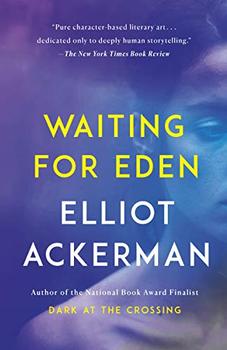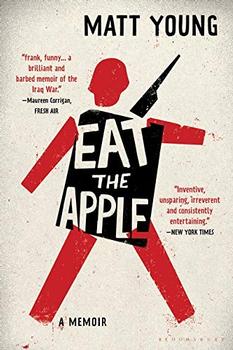Summary | Excerpt | Reviews | Beyond the book | Read-Alikes | Genres & Themes | Author Bio

Among the Soldiers of Ward 57
by Michael WeisskopfThis is a hard-hitting, down to earth piece of reporting by Time correspondent Weisskopf who, in one swift moment, moved from reporting on the story, to becoming the story. He had
returned to Iraq to report for Time Magazine's 2003 Person of the Year feature (The American Soldier), but he found himself shipping home sooner than expected with 26 other wounded ("enough men for a platoon") on the regular casualty airlift - which leaves Monday, Wednesday and Saturday nights - some of whom were destined for Ward 57, the specialist ward for male amputees at the military's Walter Reed Medical Center in Washington; and, thanks to some high level dealing, Weisskopf joined them, becoming the first civilian to be treated on the ward.
If you're looking for a gung-ho story of military heroism, or a polemic on the Iraqi War, Blood Brothers is not for you - it is not a political book and while there are heroes aplenty in its pages, Blood Brothers focuses on what happens to the soldiers who return from the front a
fraction of their former selves, and how they, and their families, learn to live with horrific and life altering injuries long after the media, and most likely the military, has lost interest in them.
Weisskopf cannot help but be part of the story but this is more a work of reporting than a memoir - certainly we learn a lot about Weisskopf's own injuries and path to recovery, but he is more
interested in telling us about the others - the young men and the wives, mothers
and children who support them.
I strongly recommend this book to a wide range of readers, including many older teenagers. Our then13-year-old son came away noticeably shaken from reading it. Like many his age, he's fascinated by military strategy; and, at the time he read Blood Brothers was working on a large report about World War I for his 8th grade history project. I gave him Blood Brothers to read after listening to
him glibly reel off the casualty figures of one battle versus another, as if
they were baseball scores. His interest in the facts and figures of
military history has not waned but it now comes with a degree of circumspection
that was not apparent before!
In a recent interview Weisskopf wrote:
"I wrote this book because I lived the life of a war casualty. This is a war of the wounded we are now engaged in. For every death, eight of our troops come home with serious injuries, twice the rate of Vietnam (due to improvements in body armor which leave the torso protected but the limbs exposed) . The U.S. is fighting a faraway war, conducted by a volunteer army, an easy thing for most Americans to overlook. I realize that war has an ugly face. It's different to wake up to it every morning at a place like Ward 57, where I lived for nearly a month and continued to visit on a near-daily basis for 18 months. I wrote this book to serve as a voice for the battle after the war that thousands of American troops face at places like the amputee alley of Walter Reed."
![]() This review was originally published in The BookBrowse Review in November 2006, and has been updated for the
October 2007 edition.
Click here to go to this issue.
This review was originally published in The BookBrowse Review in November 2006, and has been updated for the
October 2007 edition.
Click here to go to this issue.

If you liked Blood Brothers, try these:

by Elliot Ackerman
Published 2019
From the National Book Award finalist, a breathtakingly spare and shattering new novel that traces the intersection of three star-crossed lives.

by Matt Young
Published 2019
"The Iliad of the Iraq war" (Tim Weiner) - a gut-wrenching, beautiful memoir of the consequences of war on the psyche of a young man.
Harvard is the storehouse of knowledge because the freshmen bring so much in and the graduates take so little out.
Click Here to find out who said this, as well as discovering other famous literary quotes!
Your guide toexceptional books
BookBrowse seeks out and recommends the best in contemporary fiction and nonfiction—books that not only engage and entertain but also deepen our understanding of ourselves and the world around us.